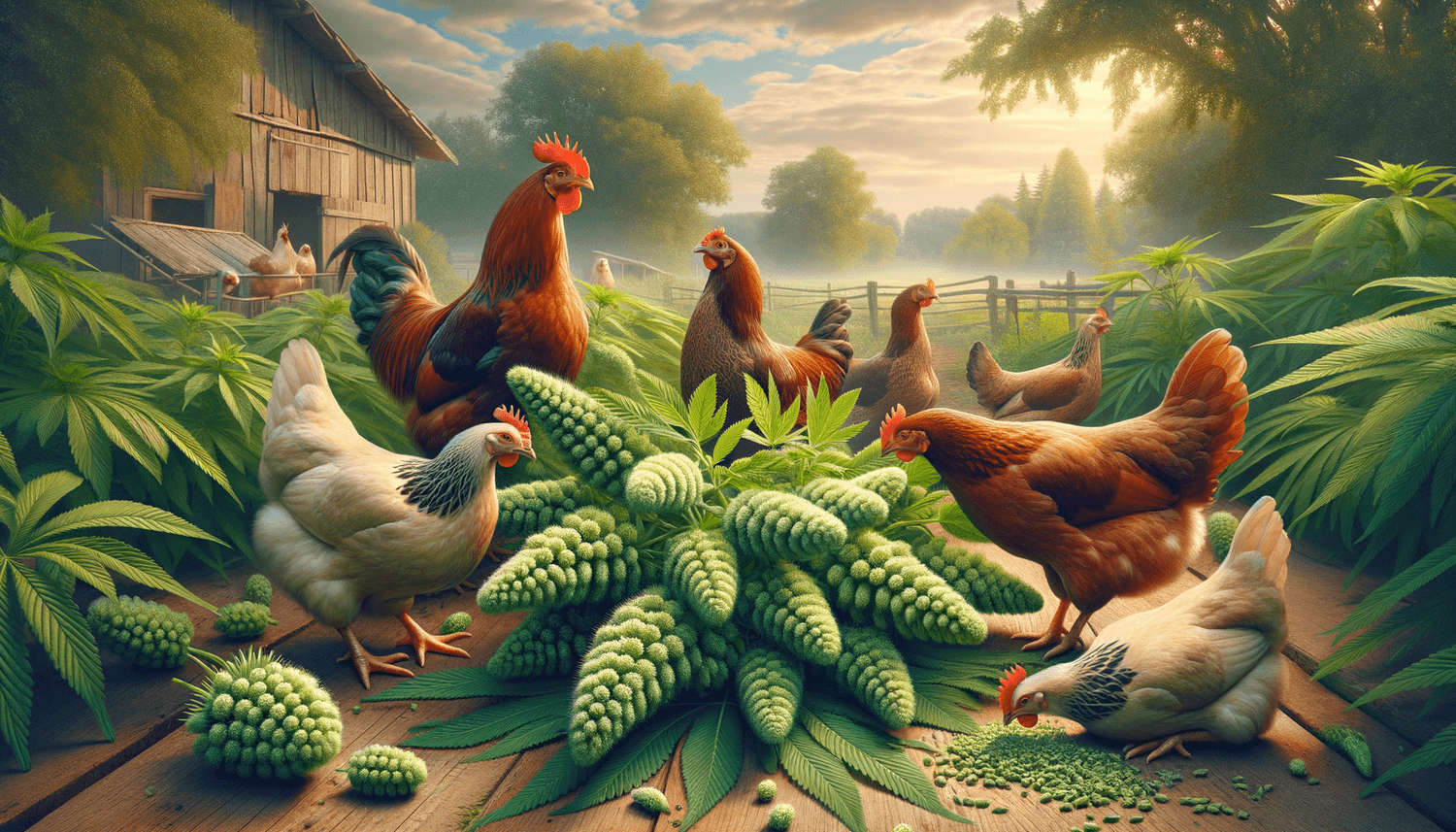Yes, chickens can eat Mugwort in moderation. Mugwort (Artemisia vulgaris) is a herb with a high variability in its chemical composition, but it typically contains several essential nutrients and is considered safe for chickens when consumed in small amounts as part of a diverse diet.
Quick Summary
- Chickens can eat Mugwort in moderation.
- Mugwort is safe when consumed in small amounts but should not replace a balanced diet.
- It may offer certain nutritional benefits, but there are potential risks if consumed in large quantities.
- A few fresh leaves added occasionally to their diet is recommended, avoiding large quantities that could lead to toxicity.
Overview of Mugwort
Mugwort is a perennial plant belonging to the daisy family, known for its aromatic leaves and stems. It is commonly used in culinary and medicinal applications in various cultures. Nutritionally, Mugwort contains essential oils, flavonoids, and other compounds that may support health, though its exact nutrient profile can vary widely based on its growing conditions.
Benefits and Risks of Mugwort for Chickens
While Mugwort can offer some benefits, such as antioxidants and potential support for digestion due to its fiber content, there are risks to consider. In large quantities, substances in Mugwort could potentially lead to toxicity, causing symptoms like lethargy or loss of coordination in chickens. Always ensure Mugwort is free from pesticides and chemicals before offering it to your flock.
Feeding Guidelines
When feeding Mugwort to chickens, offer it sparingly. Fresh leaves can be scattered in their pecking area. A small handful of leaves among a flock should suffice, ensuring that Mugwort does not constitute more than 1-2% of their overall diet. Monitor your chickens for any signs of adverse reactions when introducing new foods like Mugwort into their diet.
Alternatives
If you have concerns about feeding Mugwort to your chickens, consider safer herbal alternatives such as oregano, thyme, or basil. These herbs are widely recognized as safe for chickens and can provide similar nutritive benefits.
Expert Opinions
Poultry nutritionists and veterinarians agree that diversity is key to a healthy chicken diet. While an occasional treat like Mugwort can be safe, it should never come at the expense of a balanced, nutritious feed that meets all of a chicken’s dietary requirements. Consult with a professional if you have specific concerns about your flock’s diet.
Frequently Asked Questions
After learning about the relationship between chickens and Mugwort, poultry enthusiasts often have additional questions. Here are answers to some common queries:
How often can I safely feed Mugwort to my chickens?
Feed Mugwort only occasionally, such as once every few weeks. It should not be a staple of their diet but can be offered as part of a varied and balanced dietary plan.
Are there any specific parts of the Mugwort plant that chickens should avoid?
Chickens should primarily eat the leaves of the Mugwort plant. Avoid giving them large stems or the root system, as these parts may contain higher concentrations of potentially harmful compounds.
Will Mugwort repel insects or provide any additional benefits for my chickens?
While Mugwort has been traditionally used in various cultures for its potential insect-repelling properties, there is limited scientific evidence to support these claims in chickens. Any additional benefits are largely anecdotal, and Mugwort should not be relied upon as a sole method of pest control or health enhancement for your flock.

















